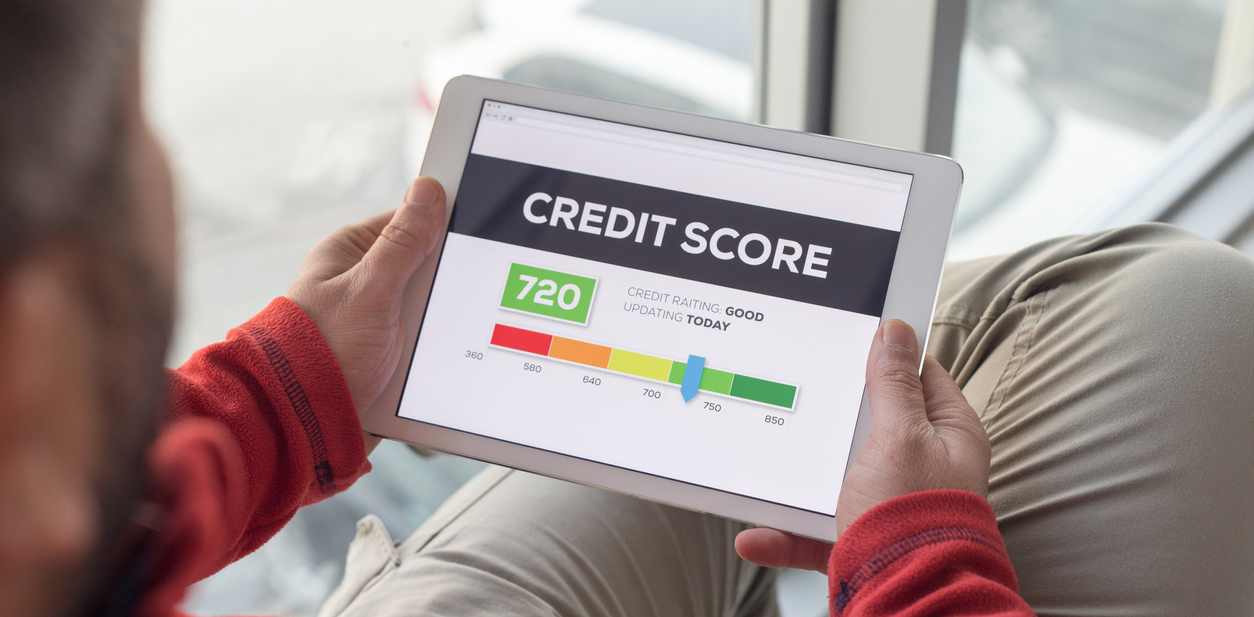Getting out of a buy-here, pay-here car loan is tricky, but it’s possible.
If you have a so-called buy-here, pay-here car loan, you know how tough it can be to manage. In between the high costs and the (shady) business practices, we don’t blame you for trying to get out of it.
The first thing to know about getting out of a buy-here,1 pay-here loan is that it is possible, but it might be a bit tougher to do than with your average car loan. We’ll walk you through how to do just that in this article, starting with a quick background of how buy-here, pay-here loans work so you can understand how best to get out of them.
What Is a Buy-Here, Pay-Here Auto Loan?
The car-buying business is split up into two groups: people who sell cars (dealerships or individuals selling their own cars) and people who give out loans for those cars (lenders).
Even if you apply for dealership financing, the dealer isn’t your lender. They work with a network of lenders who are ultimately the ones who front you the cash to buy the car.
Except for buy-here, pay-here (or BHPH) dealerships. These special types of car dealerships are both the car seller and the lender. When you make your payments, they’ll go back to the dealership itself rather than a third party.
Buy-here, pay-here loans are also known as “no credit check” loans. That’s because these lenders don’t focus on your credit score. Rather, they’ll use your income to decide how much to approve you for, and ultimately what car they’ll let you buy from the car lot.
It sounds like a good deal because it doesn’t use your credit scores, and that’s exactly why these loans are so popular among people with bad credit. According to a 2017 FDIC study, about 6% of all auto loans were from buy-here, pay-here dealerships. But as the saying goes, if it’s too good to be true, it probably is. The downsides of these buy-here, pay-here car loans probably outweigh the benefits for most people.
Downsides of Buy-Here, Pay-Here Loans
One of the biggest downsides to BHPH loans is that they’re very expensive. Buy-here, pay-here dealerships increase the cost in two ways:
- They inflate the price on lower-quality used vehicles, like those that are older or have a high mileage. They don’t typically sell new cars.
- They also charge extremely high interest rates for auto loans. These interest rates are so high that they’re actually on par with credit cards, one of the most expensive ways to borrow money aside from payday loans.
These price increases mean that you’ll have a higher monthly payment and a higher lifetime loan cost compared with traditional lenders. For example, let’s consider two different five-year loans for the same car, with a $5,000 down payment on both:
|
Typical dealership |
Buy-here, pay-here dealership |
| Loan amount |
$10,000 |
$12,500 |
| Loan term |
60 months |
60 months |
| APR |
4.5% |
16% |
| Monthly payment |
$93 |
$182 |
| Total interest cost over life of loan |
$593 |
$3,443 |
In fact, buy-here, pay-here loans are so expensive that lenders often expect you to default on the loan, and they have invasive ways to deal with this unfortunate event.
According to the Consumer Financial Protection Bureau, BHPH dealers often install GPS trackers and devices that prevent you from starting your car so it’s easier to find it and repossess it. That’s not something a typical car lender does.
Finally, one last kicker: Buy-here, pay-here lenders generally don’t report your loan information to the credit bureaus. This means you’re not able to demonstrate a positive payment history to build credit and improve your credit score. Without that opportunity, you’re more likely to have to rely on an expensive BHPH loan next time, too.
The only exception is if you don’t make your payments — negative marks usually are reported to credit bureaus.
It’s like taking on all of the risk, but getting none of the rewards of taking out a loan.
How Do You Get Out of a Buy-Here, Pay-Here Car Loan?
Since you’re making payments directly to the dealer, it might seem like you’d just be able to hand the keys back to get out of the car loan.
Unfortunately, that’s not the case. If you do that, your lender can report your missed payments to credit bureaus, take you to collections, and/or repossess your car. A repossession on your credit report can really ruin your credit score.
If you’re looking to get out of a BHPH loan, it’s important to know that you do have options. Here are some of the best ones:
Sell the car yourself and pay off the loan
The easiest way to get out of the loan for most people will be to simply sell the car yourself, and then use the money to pay back the loan. You’ll get more money if you sell it yourself rather than using it as a trade in. You’ll need to be careful with this one, though, otherwise you could end up with no car and a balance to pay off.
First, you’ll need to check what you’ll be able to sell your used car for. Second, you’ll need to contact your lender to get a payoff estimate — i.e., how much you’ll need to pay to be released from the loan. If you can sell the car for more than it’ll cost to pay off the loan, then great!
If not, then you’ll need to decide whether you’ll be able to continue paying down the loan after you sell it, or if there are any other options available to you. This is called being “upside down” on a car loan.
Refinance your loan
Another good option may be to refinance your loan — i.e., replace it with a new loan from a different lender.
“We are able to refinance buy-here, pay-here loans at RateGenius, however there can be some challenges with that for some lenders,” says Joel Benavides, Consumer Credit Manager.
According to Benavides, there are two possible problems. Since BHPH lenders don’t often report to the credit bureaus unless you default on the loan, you’re not building up the credit you might need to get a refinance loan.
Another problem is that BHPH lenders often sell and give loans out for older, high-mileage cars that refinance lenders may not be willing to finance. Traditional lenders have their own vehicle guidelines that need to be met in order to qualify for refinancing (e.g. model must be less than 12 years old, mileage must be under 125,000 miles, etc.).
Still, it’s always worth a shot to see if you are eligible. You don’t know for sure until you check with the lender. You may also be able to boost your odds of approval by working on building your credit score in other ways, by getting a co-signer, or by checking with the lending department of local credit unions.
Don’t mess up your credit
It’s important to keep making payments on your car loan until you’ve confirmed with the lender that you don’t need to make any more payments, either because you’ve refinanced or paid the loan off on your own. Otherwise, your lender can take you to collections and report your missed payments to credit bureaus.
Alternatives To Buy-Here, Pay-Here Lenders
If you haven’t gotten a BHPH loan yet or even if you’re looking to get out of it, it’s important to know what your alternatives are so you know how to avoid these risky loans.
Save up
If you’re able, the best thing to do is always to wait and save up until you absolutely need to buy a car. If you can wait long enough, you may be able to buy a car outright without having to take out a loan at all. In the meantime, you can share a ride with someone else or take public transportation.
It’s a good ideal to strive for, but we realize that’s not always possible for most people. Luckily, there are other options too.
Shop around
You might get more rejections than the average bear if you’re trying to buy a car with poor credit. That’s to be expected (and remember: your credit score is not a measure of your value as a person). If you’re willing to put in some legwork, though, you might have better luck by shopping around.
There are many legitimate lenders who specialize in working with people with bad credit (who aren’t buy-here, pay-here lenders, that is). Credit unions also have a reputation of being willing to work with the average Joe, so you may have more success there as well.
Fortunately, there’s a rate shopping window that allows you to compare loan options without hurting your score. During this period — 15 to 45 days depending on the credit score model — you can shop around with multiple lenders without worrying about the additional hard credit inquiries.
Get a cosigner
If you have a trusted friend or family member with a good credit score, you may be able to have them cosign a car loan for you. This may boost your odds of approval, but remember: Their name is on the loan too. If you don’t pay, they’ll be on the hook for the loan. Late payments will also hurt their credit if reported to the bureaus.
That’s why it’s extra-important to make your payments on time if you go this route. The last thing you want to do is burn bridges with the important people in your life because you needed to borrow money.
Bottom line
Getting out of a buy-here, pay-here car loan can be tougher than with a traditional car loan. It may require more work on your part than when you first took out the loan. It can be stressful to do, but the rewards are well worth it.
You may be able to ease some of the pressure in your financial life, and start focusing on other ways to start building credit and saving up so that you won’t have to rely on another BHPH loan the next time you need to buy a car.
About The Author
RateGenius
A better way to refinance your auto loan. RateGenius works with 150+ lenders nationwide to help you save money on your car payments. Since 1999, we've helped customers find the most competitive interest rate to refinance their loans on cars, trucks, and SUVs. www.rategenius.com
;)












